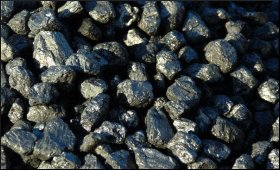|

|
Industry chamber seeks transparency in coal allocation
|
|

|
|
| Top Stories |
 |
|
|
|
SME Times News Bureau | 11 Oct, 2011
The central government should ensure transparency in the allocation of natural resources like coal and usher in competition through commercial mining, the Federation of Indian Chambers of Commerce and Industry (FICCI) said Monday.
"The government should implement the Ashok Chawla Committee report, which recommended transparent mechanism in the allocation of coal and allow commercial mining to avoid a situation like in Karnataka, where rampant illegal mining of iron ore led to multi-crore scam over the years," FICCI president Harsh Mariwala said in a statement here.
The report, which the former finance secretary submitted to the government in June, favoured creation of a national coal market to ensure greater transparency in the allocation of the dry fuel and reduce the demand-supply mismatch. The committee was set up in January this year.
Under the Coal Mines (Nationalisation) Act, 1973, only a state-run company can do coal mining without restriction of captive use, while a private firm can only do captive mining as per the act.
"Unless commercial mining is allowed and competition introduced, coal productivity will not increase and we will continue to be a net importer of coal," Mariwala asserted.
Coal imports increased to 89 million tonnes in 2010-11 from 59 million tonnes in 2008-09. In fiscal 2009-10, about 70 million tonnes were imported at a whopping cost of Rs.37,000 crore.
Indian productivity at 0.58 tonnes per man hour in 2009-10 was around one-tenth of 5.6 tonnes per man hour in the US, which is the second largest producer.
"As increasing reliance on coal imports is unsustainable in the long run, the government should allow market-based system for determining optimal allocation of resources and competitive auctioning of minerals where data is available," Mariwala said.
Calling for a regulatory framework to facilitate market mechanism, the chambers president said even the taxation regime for minerals should be globally competitive, with fair share of benefits for the government and investors.
|
|
|
| |
|
|
|
|
|
|
|
|
|
|
|
|
|
|
| |
| Customs Exchange Rates |
| Currency |
Import |
Export |
US Dollar
|
66.20
|
64.50 |
UK Pound
|
87.50
|
84.65 |
Euro
|
78.25
|
75.65 |
| Japanese
Yen |
58.85 |
56.85 |
| As on 13 Aug, 2022 |
|
|
| Daily Poll |
 |
 |
| PM Modi's recent US visit to redefine India-US bilateral relations |
|
|
|
|
|
| Commented Stories |
 |
|
|
|
|
|
| |
|